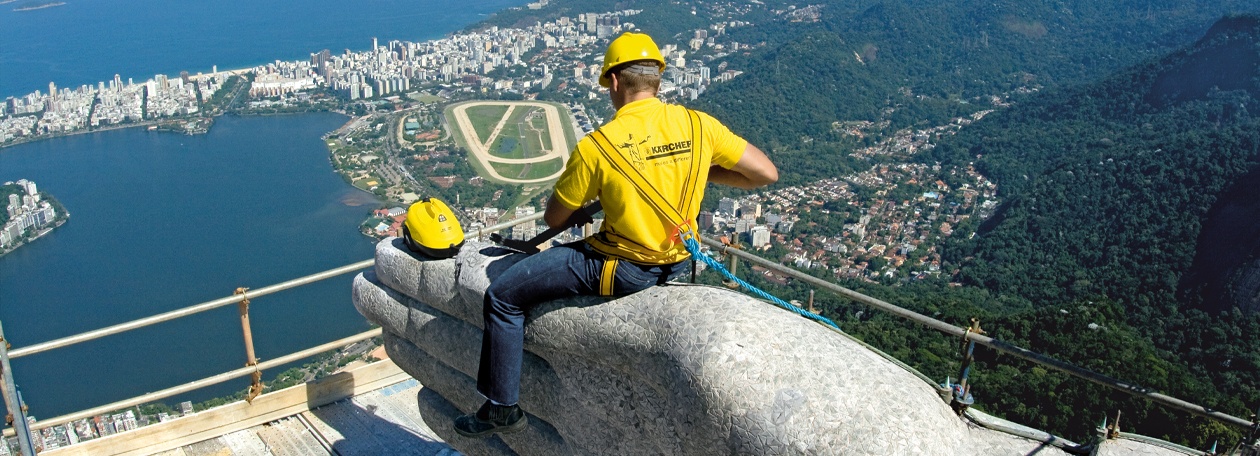Statue of Christ the Redeemer - Rio de Janeiro, Brazil

Restoration and cleaning of Christ the Redeemer statue
Just a few months after cleaning the Brandenburg Gate, Kärcher's cleaning technology and expertise were again in demand, this time for the equally famous and symbolic Statue of Christ the Redeemer in Rio de Janeiro, which required a thorough and gentle clean. The project was carried out as part of the restoration of the entire statue by a concrete restoration company. Kärcher had already cleaned the statue 10 years previously in honour of the visit from Pope John Paul II.
The Statue of Cristo Redentor (Christ the Redeemer), Rio de Janeiro's landmark, stands atop Mount Corcovado overlooking the city and can be seen for miles around. It is a monument of epic proportions, measuring 30 m in height, not including the 8 m plinth. The head alone measures almost 4 m in height – and weighs 40 tonnes! The monument was built from 1926 to 1931; the head and hands were created by the French architect Paul Landowsky.
The outer layer of the monument (and the heart of Christ inside) is faced with triangular soapstone mosaic tiles. This stone is very soft, but highly water-repellent.
Rio's landmark freed from pollution
Once the concrete restoration had been completed and the dislodged soapstone tiles replaced, cleaning could begin from top to toe. Around 10 employees worked over a period of a month to help return the scaffolding-clad statue to its former splendor. Around 25% of the outer layer was porous and coated in efflorescence and dark-colored organic deposits.
The low-pressure microparticle-blasting method, specially developed by Kärcher to clean the Brandenburg Gate, was used to great effect. With an area performance of 15 m²/h, all of the dirt was successfully removed, achieving an even surface tone; the sections that had been restored no longer looked like light patches. No cleaning agents were required to carry out the work.
Cleaning was completed on the plinth and grounds at the foot of the statue using Kärcher high-pressure cleaners in March 1991.
















